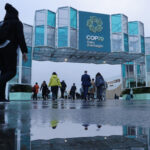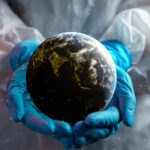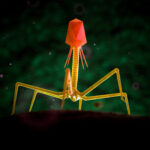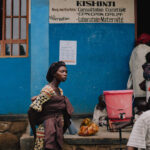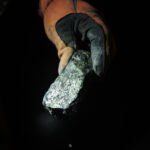Abstracts: Mad Reindeer, Space Mining, and More
A roundup of science news from around the Web — and around the world.
• Interest in legal cannabis cultivation is growing like a weed, and rumors suggest that the US Drug Enforcement Agency will reconsider marijuana’s ranking under the same label as substances like heroin. The reason pot was categorized there in the first place is an interesting story in itself. (Scientific American)
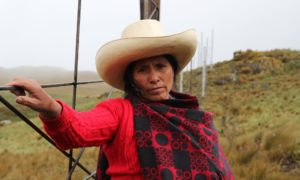
Maxima Acuña de Chaupe, a Peruvian woman who was awarded the 2016 Goldman Environmental Prize for standing up to mining companies that wanted her land. Visual by 2016 Goldman Environmental Prize.
• A deadly brain disorder related to mad cow disease has spread to Norway’s reindeer, leaving scientists puzzled over how it got there. (Nature News)
• Perhaps taking inspiration from a certain fictional astro-botanist, NASA is exploring whether they could actually grow potatoes in the dry red soil of Mars. (Christian Science Monitor)
• The contamination standards for water are dramatically different, depending on who you ask — so how should we decide when water is safe to use? (Pacific Standard)
• By 2020, swarms of satellites will be mining asteroids in space. But this science fiction future could lead to conflicts back on our home planet. (Nautilus)
• Continuing a worrying trend among marine animals in 2016, dead turtles are washing up on the shores of the Gulf of Mexico. (NOLA.com)
• Though its been years since South Africa’s apartheid laws were abolished, the racial divide lingers thanks to market forces in this small fishing village. (Hakai)
• A Peruvian woman who refused to yield to gold and silver mining companies that wanted her farmland has won the 2016 Goldman Prize, the world’s most prestigious environmental award. (The Guardian)
• And finally: how do we decide if a plant is native or not as climate change shifts its range? (Yale e360)




